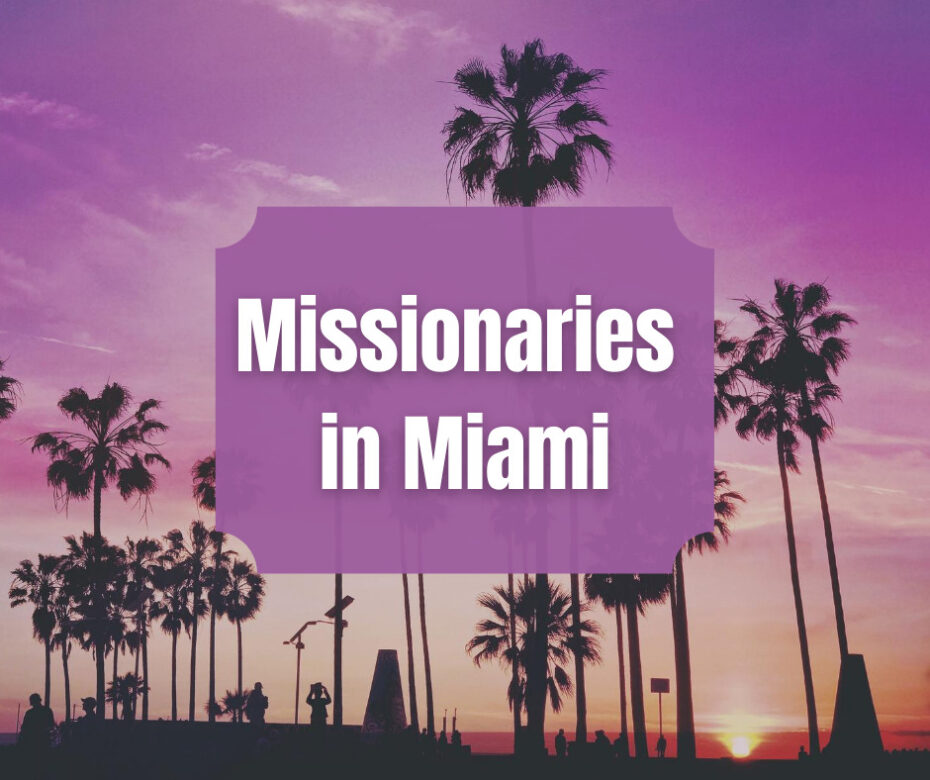“Welcome to the 305!”
This past week I was in Miami for a GES Regional. It was a good conference, held under unusual conditions. Nevertheless, the church warmly welcomed me. And I believe the Biblical teaching blessed the people who attended.
That said, I think my most important lesson came immediately before the conference.
On Friday morning, some friends of mine (a husband and wife team) gave me a tour around the city. I won’t mention their names to avoid embarrassing them. I learned a lot from that tour—not only about the city itself but about what it means to be urban missionaries.
At least, that’s what I call it.
This husband and wife team are not “official” missionaries working with an organization. But they were functioning as missionaries—just as you and I are called to be witnesses in our respective cities. We’re in the world to reach the world. And most people in the world now live in cities. In the US, 62% of people live in cities. Who is reaching them?
As my friends took me through several different neighborhoods around Miami, they would tell me the history of that place, point out individual buildings, remark on the architecture, and explain significant events that happened here and there.
They knew Miami intimately.
It was their home.
And they loved their city.
As we parked our cars and walked around Miami’s design district (I believe it was called Wynwood), I noticed the husband would greet everyone. It was not in a typically friendly “Southern” way, but it was somehow more intentional.
And then I realized he was especially greeting and striking up little conversations with the servers and sellers and security guards—the “common” people. And that reminded me of a conversation I had the night before.
I was eating dinner with the elders of the church, many of whom were Latino from Cuba, Puerto Rico, and the Dominican Republic. It was a delicious feast of Cuban food. But the conversation was even better. We were discussing faith and politics (the two “no-no’s”!) and why it was that socialism became prevalent in countries such as Venezuela. “Venezuela was the richest country,” one man said. “They had so much money, that when people just started getting cell phones here, everyone in Venezuela already had one!”
“So what happened?” I asked.
“Because the people with money—the ones who had a lot of money—they would treat the waiters and the waitresses and the workers terrible! Terrible! And so, all it took was a man like Chavez, who had charisma, to go to them and say, ‘See their private clubs? I’ll make sure you can get in. See their fancy schools? You’ll be able to go. See all their money? I’ll make sure that you get some.’ So they voted for him, and now it’s a mess.”
They explained how many of the wealthiest people in South America, especially from Venezuela, had since moved to Miami and bought the best properties. “Now it’s not a question of the rich pushing out the poor, but of the super-rich pushing out the rich!”
And, it seemed, they brought those same dismissive attitudes with them.
When my friends took me to eat lunch at a historic Cuban restaurant named Versailles, where the exiles would come to hear news from home and debate politics, we sat outside because the dining room was closed. The husband and wife greeted the servers they knew, learned the names of waiters and waitresses they didn’t know, asked about the workers who were not there, and jotted names and notes in a journal. And you know what? The workers seemed genuinely glad to see them. Was it because my friends treated them like fellow image-bearers?
My friends explained to me that, while Miami was spiritually dark, if you treated the people (especially the “common” people?) with love and respect, you’d find they were open and hungry to hear the gospel. “One night,” the wife explained, “we were sharing the gospel and a group of servers gathered around, and you could feel the Holy Spirit created a sense of peace and quiet in that little circle, even though it was busy all around us.”
Here are the two important take-aways from my time with this Christian couple: urban missionaries need to (a) love their city and (b) love the people in it.
The urban missionary’s love for his city commits him to minister there—through thick and thin—because he genuinely cares about what happens to it. Moreover, his love for the city makes him attentive to what is going on within it. He is not ministering blind, but with his eyes wide open, and sometimes, like Jesus’ eyes, they are filled with tears:
When He approached Jerusalem, He saw the city and wept over it (Luke 19:41 NASB).
But more importantly, the urban missionary loves the people in his city. He sees them. The waiters, waitresses, and cashiers are not invisible but seen as precious individuals for whom Christ died and to whom He offers eternal life if they only hear the message and believe it.
How then shall they call on Him in whom they have not believed? And how shall they believe in Him of whom they have not heard? And how shall they hear without a preacher? (Rom 10:14).
Whatever city you live in—be it big or small, famous or infamous—have you considered that you are the preacher (little “p”) that God has sent to share the message of everlasting life to people who have not yet heard it?
In which case, take a lesson from my friends. To maximize your effectiveness, you might want to begin by developing a relationship with the people in your city. Because when those overlooked people know that you love them, they will be more open to hearing about the Savior who loves them infinitely more.


